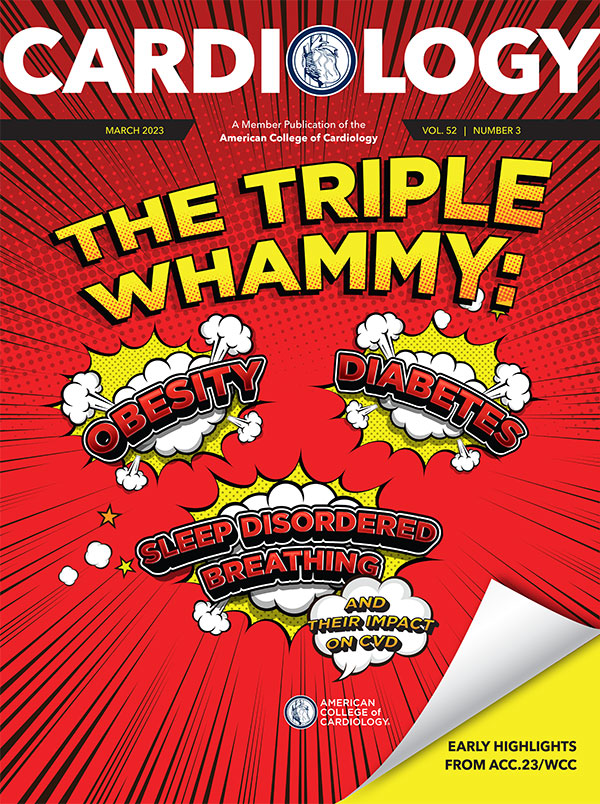Heart of Health Policy
MedAxiom Reports Reveal APP and Structural Heart Program Trends, Opportunities
Two new reports developed by MedAxiom reveal trends and opportunities for optimizing advanced practice provider (APP) utilization and growing structural heart (SH) programs, respectively.
Nearly 100 organizations took part in the third annual Cardiovascular Advanced Practice Provider Compensation and Utilization Survey, which showed that APP salaries have climbed by 16% over the last five years, with median APP compensation increasing to $117,104. The APP per physician ratio, now at 0.6, continues to increase and the use of APPs in subspecialty cardiovascular areas like electrophysiology is also on the rise. Most cardiovascular programs use APPs independently, according to the report.
According to report author Ginger Biesbrock, DSC, PA-C, FACC, executive vice president of Care Transformation at MedAxiom, participation in the annual survey has increased almost 50% year-over-year, demonstrating "how engaged cardiovascular programs are in sharing best practices and advancing their care teams."
The second Structural Heart Program Opportunities Report was conducted to better understand the current and future states of structural heart program and provide insights and best practices for navigating staffing, capacity and growth challenges given the evolving landscape. Key takeaways from the report include:
- Structural heart staffing is still widely variable including staff ratios, staff type and roles/responsibilities, suggesting the need to streamline and create best practices.
- The structural heart coordinator is a common role with most organizations using an RN for this role and the majority of the responsibilities falling within the RN scope of practice.
- Procedure staffing type and number of staff present are also highly variable, suggesting that most organizations have an opportunity to optimize and redeploy staff to other functions.
- Structural heart growth is anticipated by most programs. However, all programs note staffing constraints and half note facility constraints.
"Growth in volumes and degree of required care coordination have created an environment where programs are challenged with achieving effective access, efficient patient throughput, appropriate staffing, and the clinical effectiveness that they would like to achieve for their program," the report states. "Team alignment and appropriate use of resources are key."
To access the full reports, visit MedAxiom.com/Reports.
ACC Comments Address Request For Reconsideration of Current Carotid Stenting NCD
The ACC, along with the American Heart Association, submitted comments to the Centers for Medicare and Medicaid Services (CMS) on the formal request for reconsideration of the National Coverage Determination (NCD) 20.7 for Percutaneous Transluminal Angioplasty of the Carotid Artery Concurrent With Stenting.
The letter expresses support for updating NCD 20.7 to broaden the coverage indications for carotid artery angioplasty and stenting based on significant developments in techniques, patient selection and technology since the last consideration in 2009. Among the specific comments, the letter expresses support for the "removal of the facility and operator requirements for carotid artery stenting (CAS) consistent with the current state of the published literature and standard clinical practice," as well as support for "CMS sunsetting the data collection requirement as facility criteria for coverage of CAS." In addition, the letter supports "the expansion of coverage in Medicare patients for carotid artery angioplasty and stenting in asymptomatic patients with ≥70% stenosis and patients with symptomatic carotid artery stenosis ≥50% and agree with eliminating the requirement that patients be at high risk for carotid endarterectomy (CEA)."
A draft decision memo will be issued by July 12, at which time the ACC will provide additional feedback. Click here to access the full letter.
COVID-19 Emergencies to End This Spring
The Biden Administration in late January extended the COVID-19 national emergency and public health emergency (PHE) through May 11. However, it also announced that both emergencies will end as of that date. This expiration of emergency declarations will likely come with several policy changes with direct impacts on the U.S. health care system, given that many temporary provisions were put in place during the pandemic to assist clinicians and patients with access to care, vaccines and more.
In addition to expected changes to the cost sharing for COVID-19 vaccines, testing and certain treatments, other implications relevant to cardiovascular clinicians, include an end to:
- Enhanced Inpatient Prospective Payment System reimbursement rate for patients diagnosed with COVID-19
- Waivers for potential penalties for Health Insurance Portability and Accountability Act violations against health care providers that serve patients in good faith through everyday communication technologies
- Ability to use telemedicine to prescribe controlled substances
- Medicaid and Children's Health Insurance Program flexibilities including disaster relief plan amendments and different waiver programs
Of note, the Consolidated Appropriations Act of 2023 introduced several provisions that decoupled select policies from the PHE, including:
- Extending Medicare telehealth flexibilities through Dec. 31, 2024, regardless of PHE status
- Delinking Medicaid continuous enrollment provision from the PHE and ending continuous enrollment on March 31, 2023
- Phasing down enhanced federal funding through Dec. 31, 2023
ACC Advocacy will continue to monitor the health policy implications associated with the end of the emergencies this Spring. Click here for a more detailed list of policies impacted by the end of the PHE from the Kaiser Family Foundation. For the latest news and guidance on COVID-19, visit the ACC's COVID-19 Hub.
Clinical Topics: Arrhythmias and Clinical EP, Cardiovascular Care Team, COVID-19 Hub, Invasive Cardiovascular Angiography and Intervention, Vascular Medicine, Implantable Devices, SCD/Ventricular Arrhythmias, Atrial Fibrillation/Supraventricular Arrhythmias, Interventions and Vascular Medicine
Keywords: ACC Publications, Cardiology Magazine, Accidental Falls, Cardiac Electrophysiology, Workforce, Physicians, Salaries and Fringe Benefits, COVID-19, Pandemics, Medicaid, Medicare, Centers for Medicare and Medicaid Services, U.S., Inpatients, Controlled Substances, Emergencies, Health Policy, Telemedicine, Health Services Accessibility, Social Responsibility, Carotid Stenosis, Stents, Noncommunicable Diseases, Endarterectomy, Carotid, Angioplasty
< Back to Listings


